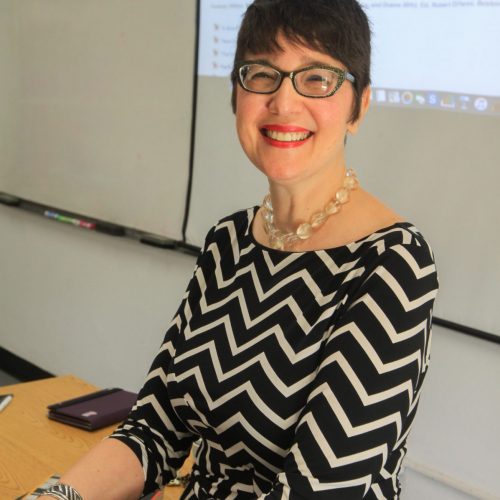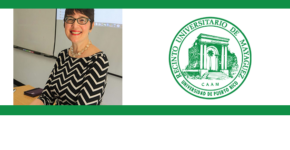 What can communal trauma suffered in Puerto Rico teach us about the response to Covid-19?
What can communal trauma suffered in Puerto Rico teach us about the response to Covid-19?
Ricia Anne Chansky, professor of literature at the University of Puerto Rico at Mayaguez, listens to voices to find out.
Ricia Anne Chansky is professor of literature. She is the co-editor of the scholarly journal, a/b: Auto/Biography Studies, a member of the Routledge Literature Portfolio of journals, and editor of the Routledge Auto/Biography Studies book series. Her book publications include the co-edited volumes: The Routledge Auto/Biography Studies Reader, a Routledge Literary Theory Reader (2016); Life Writing Outside the Lines: Gender and Genre in the Americas (Routledge, 2020); and, The Untied States: Unraveling National Identity in the Twenty-First Century (U of Wisconsin P, forthcoming). She has also edited two books: Auto/Biography across the Americas: Transnational Themes in Life Writing (Routledge, 2017) and Auto/Biography in the Americas: Relational Lives (Routledge, 2016). Currently, she is at work on an edited collection of oral histories of Hurricane María, which is under contract with Haymarket Books, and a single-author book on narrating disaster. Her forthcoming children’s book, Maxy Survives the Hurricane/Maxy sobrevive al huracán, was co-authored with a student in the Department of English and is forthcoming from Arte Público Press.
She is a member of the Executive Board of the International Auto/Biography Association (IABA), Chair of the IABA Americas Chapter Steering Committee, member of the Executive Board of the MLA Genre Studies Forum on Life Writing, Fulbright Specialist in US Studies, Research Affiliate at the York University Centre for Research in Latin America and the Caribbean, and Global Fellow at the Bro
She directs the large-scale public humanities project, “Mi María: Puerto Rico after the Hurricane.” For work on this project, she has been funded by the NEA, awarded the inaugural MLA Innovation in the Humanities Award, named a Voice of Witness Fellow, and selected as a partner in the Humanities Action Lab (HAL) “Initiative on Climate and Environmental Justice.” Additionally, she completed an NEH Summer Seminar on digital humanities in Caribbean contexts, taught in partnership with the Digital Library of the Caribbean (dLoc). Most recently, she has designed the HAL Covid-19 digital mass-listening project.
Community Responses After Disasters
In my large-scale public humanities project, “Mi María: Puerto Rico after the Hurricane,” I use oral history and other biographical methodologies to amplify the voices of survivors while building a body of text through which to study community responses to climate disaster.
Two initial observations seem particularly relevant to the global crisis that we are currently experiencing. First, participants in communal trauma need spaces to voice what they are experiencing, as self-narration helps to resituate disempowered peoples as active agents in their own lives. The need for such a repositioning supersedes traditional demands for carefully crafted life stories, allowing for the urgency and messiness of the situation to shape the narratives.
Second, an official report tells one kind of story. It might state that 1,000 multiuse structures sustained partial damage. However, clarifying that the term multiuse can include a house that is also used as a business causes us to understand those figures differently. And, if we understand the classification of “partially damaged” as inclusive of the loss of a wall or a roof, we can then read this story as one in which someone’s home, which is also their livelihood, is uninhabitable. In other words, the narrative elements will not change the facts, but they can change the story.
What we have learned about the power of storytelling and narrative transactions in times of disaster can inform our way forward through the communal trauma of Covid-19 and how we might maintain interpersonal connectivity while forging a way forward that is defined by an ethics of care and mutual respect.

Comments
3 responses to “Ricia Ann Chansky, University of Puerto Rico at Mayaguez – Community Responses After Disasters”